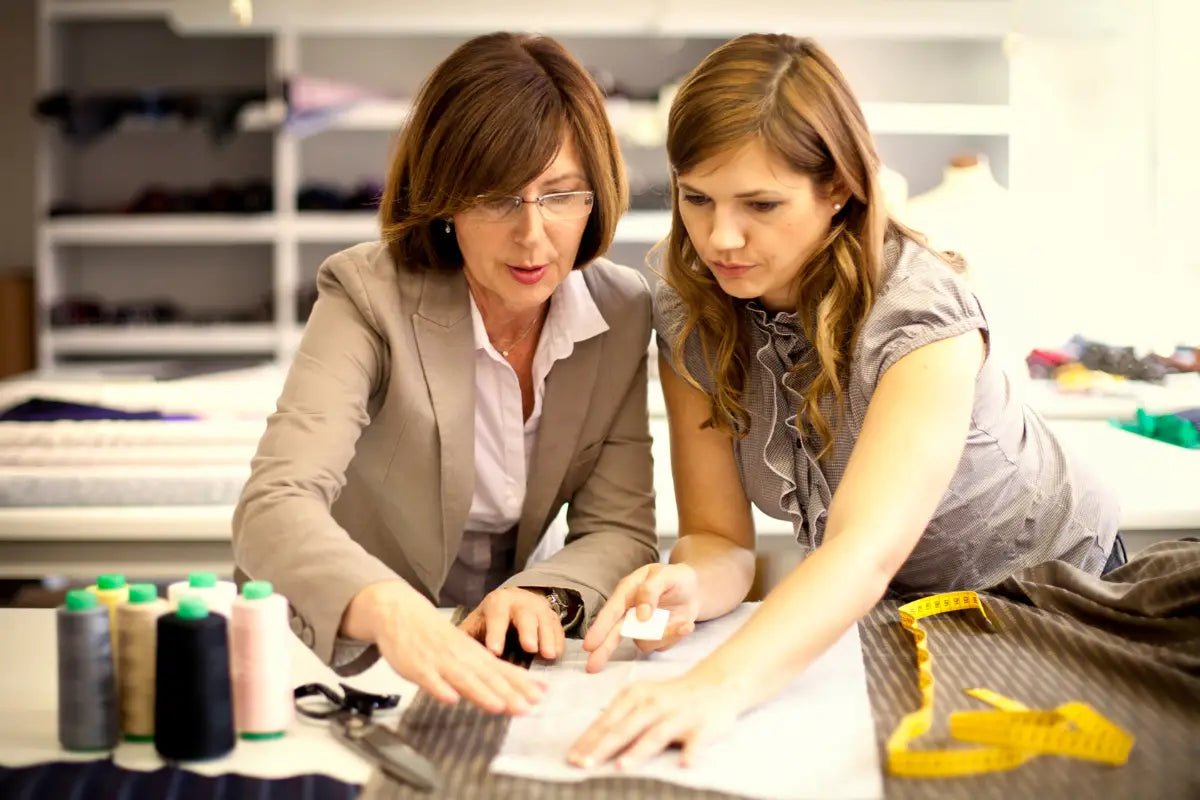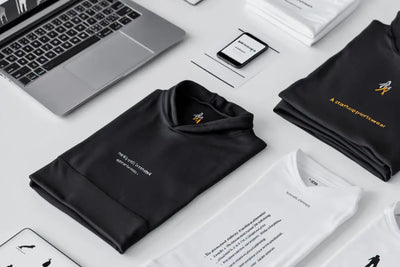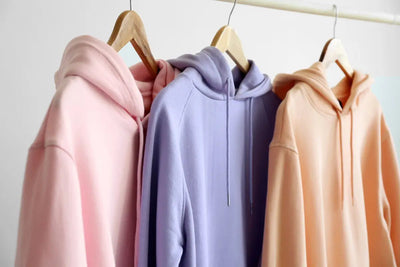
Who is Represent’s Manufacturer?
If you’re trying to launch or expand your own clothing brand, you’ve probably wondered: Who manufactures for brands like Represent, Gymshark, or Alphalete? The idea of finding their manufacturers and working with them seems simple, but the reality is far more complicated.
In this article, you’ll learn:
- Why finding and contacting your favorite brand’s manufacturer is unlikely to work for new brands and startups
- The reasons big manufacturers reject smaller or new brands
- What large manufacturers look for in their clients and why startups usually don’t fit the profile
- Why high MOQs, financial stability, and production experience are key factors
- The biggest mistakes new entrepreneurs make when trying to source production
By the end of this article, you’ll understand why this approach doesn’t work - and the better and smarter way to find the right manufacturer for your brand.
“Who is Represent’s manufacturer?” It’s a question being asked a lot these days - and we asked similar questions too when we started building our own first brand. Back then we turned to Google to find out where the brands we admired, the ones that inspired some of our own ideas, manufactured their products. The idea was simple: find out who the producer behind the brand is and get them to manufacture our items as well. Simple, right? How hard could it be?
If you’re in the process of starting or expanding your clothing brand and you’ve landed here - this article will save you a lot of time and money. I will share some insights about the clothing industry and explain why this approach - finding the manufacturers behind your favorite brands - won’t give you the results you’re looking for.
The Reality of Finding a Manufacturer
Who is the manufacturer behind Represent? Who makes the seamless products for Gymshark or Teveo? Where does Alphalete or YoungLA get their clothing from? These are legitimate questions and often the starting point for many new entrepreneurs wanting to create their own clothing brand. Unfortunately, even if you find out who the manufacturer of your favorite brand is - and by the way in 99% of cases it’s more than just one - it won’t give you the desired outcome. Here’s why: Even though those brands all started pretty much where you are right now, their current manufacturer is most likely not the one they began with. But let’s say you do find out who it is. You send them an email, introduce yourself, and share your plans for your own items.
I’m sure some of you have already done this and - got no response. Or, in a few cases, a response like, “We’re currently at maximum capacity,” or “We currently don’t take on new clients.” Sound familiar? If you’re wondering why this happens and why this will, in 99% of cases, be the outcome of this approach, let me give you the truth.
Those manufacturers are not interested in working with you. In fact, it’s the opposite - you’re literally someone they don’t want, at all! Here’s why:
- Not Interested in Lower Quantities: Established manufacturers working with big brands like Represent or Gymshark deal in high-volume orders. This is the easiest and most profitable way for them to make money. And most new brands can’t even meet their minimum order quantities (MOQs), making you an unattractive choice.
- Not Interested in Rookies with No Track Record: These manufacturers prefer clients with a proven history of success. Newbies always lack the experience and consistency for new orders they look for in a partner.
- Lack of Finances and Reliability: Startups don’t have the financial backing or stability to place those consistent, large orders, which makes them risky and undesirable in the eyes of manufacturers.They want large orders, easy processes and reliable cash flow.
- No Patience for a Long Sample Process : “Oh no, not again, one of those new wannabe entrepreneurs that don’t even know what a tech pack is, let alone how to provide one… “ Manufacturers don’t want to waste time on a lengthy sampling process with inexperienced clients. Sampling is a process that takes up a lot of time and resources, and there is no money in it. Money comes from executed orders. Those months of sample production cycles are at the very bottom of every clothing manufacturer’s wishlist.
- Protecting Their Big Clients: And lastly, if you have a good thing going on with a large brand, would you risk that relationship for an order of 300 hoodies? Of course not. So they won’t share or produce the items they make for their established clients for a “nobody” like you.
The Hard Truth – and a Glimmer of Hope
And even though this already is a tough pill to swallow and probably not what you wanted to read here—it gets worse! The reality is that most big manufacturers won’t work with small or new brands, leaving many entrepreneurs feeling stuck. But spoiler alert—there is a proven way to find the right manufacturer without endless rejections or wasted time. In part 2, we’ll show you a step-by-step process to find a manufacturer that meets your needs, offers low MOQs, and actually helps you bring your brand to life.
1. Can I work with the manufacturer of my favorite brand?
Most established manufacturers prioritize large orders from well-known brands. They typically won’t take on smaller clients because it’s not financially beneficial for them. Additionally, many have exclusive agreements that prevent them from working with other brands.
2. Why do manufacturers prefer working with established brands?
Manufacturers value long-term, financially stable partnerships. Established brands have proven sales records, can place large orders, and understand the production process, making them a low-risk, high-reward client.
3. Can I convince a big manufacturer to work with me by offering future business?
Unlikely. Most manufacturers hear this promise often and won’t take the risk unless you can prove sales volume and financial stability. Future potential doesn’t pay for materials or production costs upfront.
4. Why do manufacturers avoid startups with no production experience?
Startups often require long sampling processes, more communication, and additional support, which takes up time and resources without immediate financial benefits. Manufacturers prefer working with brands that already understand tech packs, order processes, and material specifications.
5. What happens if I place an order that doesn’t meet a manufacturer’s MOQ?
Most manufacturers won’t accept the order, or they may charge significantly higher prices to compensate for the low volume. Some might ignore requests altogether if they don’t see potential for long-term collaboration.
6. If this approach doesn’t work, how should I find a manufacturer?
Rather than chasing large manufacturers that work with established brands, look for smaller manufacturers that specialize in low MOQ production. There are better sourcing strategies, which we’ll explore in part 2 of this article.
If you want to avoid wasting time and money trying to work with manufacturers that aren’t a good fit, check out part 2, where we share a step-by-step process to find the right production partner for your brand.



Leave a comment
This site is protected by hCaptcha and the hCaptcha Privacy Policy and Terms of Service apply.